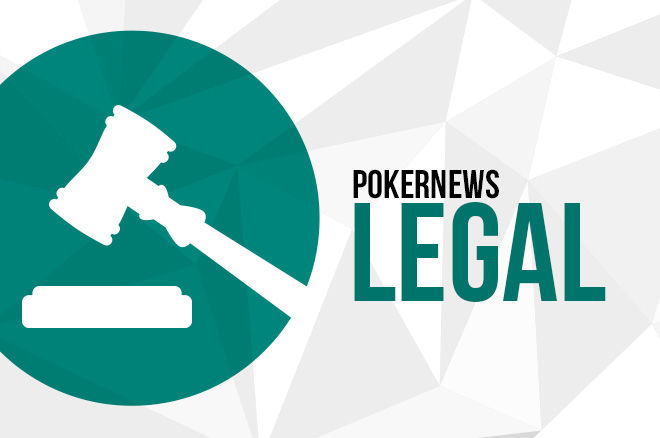- Are Us Gambling Winnings Taxable In Canada 2020
- Are Us Gambling Winnings Taxable In Canada Compared
- Are Us Gambling Winnings Taxable In Canada Today
- Are Us Gambling Winnings Taxable In Canada 2019
This post is going to take a much deeper dive into the taxation of gambling in Canada. As we all should know, lottery winnings are not subject to tax in Canada, but that is just the tip of the iceberg. Let's look much deeper into gambling, legal and illegal, and see where it switches from being tax-free to taxable. Canadians who gamble in the United States may find that 30% of their winnings are withheld to cover U.S. Non-resident's tax. Under certain circumstances, this tax can recovered by filing a U.S. The IRS requires casinos and other gambling establishments to withhold 30% of the gambling winnings of Canadian visitors to the U.S. In Canada, gambling winnings are generally free from taxation. The tax exempt status of gambling winnings comes from the longstanding principle in British law that the winnings of a person placing bets should not be taxed, while the winnings of a bookmaker are taxable.2 This principle has been codified in Canadian law by 40(2). If you’re a resident of Canada, you don’t have to report any of those gambling winnings in Canada. You are also not eligible to claim a foreign tax credit on your tax return in Canada because you did not report any income outside the country. 1.12 An individual’s gambling activities may result in taxable business income or a business loss. This will be the case if the gambling activities constitute a source of income (that is, carrying on the business of gambling). Determining the commerciality of gambling can be challenging.

Taxation of Gambling Winnings in Canada
Time for a blog post about taxes. How are gambling winnings in Canada generally taxed? What if you play in a poker tournament in Canada? Are those winnings taxable? Does it matter if you’re a professional poker player or not?
In each case it will depend on a factual determination of whether you are carrying on the business of being a poker player or a gambler.
Source Income
Very generally, the “income” in respect of which one is taxed in Canada is one’s “income from source” as set out in the Income Tax Act[1] (the Canadian equivalent of the Internal Revenue Code). What is income from source? It is a productive source of revenue from an office, an employment, a property, a business, or (without limiting the generality of the foregoing) an “other source.” Income from betting or wagering isn’t from an office or employment, and it’s not conceptually like the rents, interest, royalties, or dividends that come from property. The courts in Canada have demonstrated a reluctance to extend tax liabilities to cover unenumerated sources (the “other source” referred to above) of income; it’s unlikely that any gambling activities would be included in unenumerated sources.
That leaves income from business. When one carries on business in Canada, whether as a resident or a non-resident, one is generally taxable on the profit associated with that business. So, can a gambler be carrying on the business of gambling? The answer is that it’s conceptually possible, but it’s not easy.
In order to carry on business as a gambler based on the decided cases, one has to carry on a business with a fairly high level of skill. The two most prominent cases where a person was found to be taxable on gambling winnings involved a professional golfer who made money wagering on his own performance in matches[2] and a snooker player who hustled drunks in money games.[3]
There is an old paragraph of the Act called “right to a prize” that provides as follows: “a taxpayer’s gain or loss from the disposition of (i) a chance to win a prize or bet, or (ii) a right to receive an amount as a prize or as winnings on a bet, in connection with a lottery scheme or a pool system of betting referred to in section 205 of the Criminal Code, is nil.”[4] While this language appears straightforward, this paragraph is of limited assistance and raises more questions than it answers; section 205 of the Criminal Code was repealed in 1985.
Are Us Gambling Winnings Taxable In Canada 2020
Lotteries, Games of Chance & Sports Betting
It’s safe to say that a person in Canada winning a lottery prize or winning at a game of pure chance (e.g., craps, roulette, or slots) is not subject to Canadian income tax on those receipts and, in fact, no modern reported case that I am aware of has found such receipts to be taxable. This makes intuitive sense as it would be difficult to imagine anyone actually making a commercial living based on pure chance.[5]
What about sports betting? In perhaps the leading case on the taxation of gambling winnings in Canada right now,[6] these kinds of winnings were not held to be taxable. The taxpayers in that case played the provincial sports lotteries. Even though they were financially successful, devoted themselves to the activity full-time, and had an organized and systematic approach to playing the lotteries and comparing posted odds to the Vegas odds, the court concluded that they were compulsive gamblers “continually trying their luck at a game of chance.”
The Poker Situation
Poker, however, provides an interesting possible counterpoint. Again, for most people, and certainly for the casual player, there will be a presumption against taxation of poker winnings as they will not be from a business. But what of the professional[7] poker player? Although there is no remotely recent case holding that a professional player is taxable on her profits from poker, it’s possible to see how such a case could be made by the government. Among other indicia, if a resident in Canada is successful in poker with solid and consistent profits from the activity over a number of taxation years, has no material income-earning occupation other than playing poker (or related to playing poker – sponsorships, for example), and is a student of the game and works at learning and improving her game, then it seems likely that that resident would be classified as carrying on the business of being a professional poker player and be taxable on her profits from the game.
Making an actual determination like this would be extremely difficult. Where is the tipping point at which a taxpayer makes the leap from an amateur player to a professional sufficiently devoted to poker, consistently winning, and making good money? These things are much easier to nail down in theory than in practice. This is part of the reason that the Canada Revenue Agency is reluctant to assess people as having income from carrying on the business of playing poker; if business profits are taxable, then business losses can be also used to reduce income from that business and (in the case of individuals) from other businesses or from employment. If the government gets overly aggressive with taxing poker players, it could eventually find that it results in a net drain on Canada’s tax revenues.
How could the tax laws in Canada apply in a land-based poker tournament being held in Canada pursuant to applicable provincial laws and regulations? This is an interesting question. An amateur player would likely not be taxable, but let’s assume that a professional poker player who is resident in Canada wins such a tournament. Again, based on an analysis that the player has the hallmarks of a professional poker player discussed above, those winnings would likely be included in the player’s income from a business.
What of a United States resident professional player winning such a tournament? Non-residents are generally taxable on income earned from carrying on a business in Canada, and “carrying on business” in this context is broadly defined.[8] However, the Canada-US Income Tax Convention (the “Treaty”) provides that where a US resident is carrying on business in Canada, the business profits are taxable by Canada only if the US resident is carrying on business through a permanent establishment. Permanent establishment in the Convention is an inclusive definition, which means the examples given are not exhaustive – things can be permanent establishments even though they’re not specifically itemized. However, this enumerated list includes structures and relationships like a branch, an office, a factory, a construction site, and an agent in Canada habitually exercising authority to conclude contracts in the name of her principal. It’s highly unlikely that a non-resident coming to Canada and playing in one land-based tournament and then leaving the country would be seen to have a permanent establishment in Canada.
Therefore, it doesn’t appear that a US professional playing at a Canadian land-based tournament would be subject to tax in Canada under the terms of the Treaty, which also suggests that the tournament would not withhold on any payments to that non-resident. Indeed, there appears to be no withholding obligation for such a payment to a non-resident in the Act. (In each case of a non-resident, it will be important to know what her home country’s tax convention with Canada says, if in fact the two countries have signed one.)
Income Derived From an Illegal Source
One other comment should be made: If one has income from an illegal activity, in Canada that income is still generally taxable even though ill-gotten.[9] Accordingly, players and gaming operators (including poker operators and players) committing offences under the Criminal Code, whether in bricks-and-mortar facilities or online, may still very well be taxable on their activities. Given that criminals often hide their incomes, this note is more technical and of less practical use to most people.

Are Us Gambling Winnings Taxable In Canada Compared
[1] R.S.C. 1985, c. 1 (the “Act”). There is an excellent and recent article addressing the income tax aspects of poker in Canada: Income Taxation of Poker Winnings in Canada by Benjamin Alarie. Alarie addresses many of the issues in much more detail than I do here. However, I will also talk about non-residents participating in land-based poker tournaments, which Alarie did not discuss.
[2]Dowling v. R., [1996] 2 T.C.J. No 301 (T.C.C.).
[4] Paragraph 40(2)(f).
[5] This ignores any possible ‘breaking’ of the provincial lotteries or some other way of systematically reducing or eliminating the odds of losing. See the interesting article in Wired by Jonah Lehrer for some perspective on this. This could, at least conceptually, make a “random” game, if pursued systematically and consistently, a business or adventure or concern in the nature of trade for tax purposes.
[7] By this I don’t mean a professional in the sense that one is regulated by a governing body to which one pays dues, has professional insurance, etc. I use the term more loosely to describe any individual that receives income that is compensation for or attributable to the individual’s activities as a player in a sport or activity.

[9] See for example R. v. Poynton (1972), D.T.C. 6329 (Ont. C.A.).
The short answer is no. Your online winnings are not taxable in Canada, unless you are a professional gambler living from your earnings. Even that is a roller-coaster ride when you consider big wins as profits and large losses as expenses to offset those profits.
Why Don’t Online Casino Players Pay Taxes On Their Winnings?
When you win playing online casino games, Canadian laws do not see these winnings as income to be taxed. This is because, in the eyes of the law, a player’s winning amount is due to luck, not an expectation. The origin of the tax law is a long-standing principle from British Common Law, codified in Canada under paragraph 40(2) (f) of the Income Tax Act. This has been upheld by the Canadian Courts, as long as the profits are not business-related. Three categories deal with taxation on gambling winnings:
Are Us Gambling Winnings Taxable In Canada Today
- If a player makes enough to maintain his standard of living, it does not in itself make the amount taxable.
- No matter how much you enjoy online gambling, and how much attention you give it, it does not make it taxable.
- A system for minimization of risk can distinguish between a professional and an intemperate gambler. Once again, an intemperate gambler’s winnings are not taxable.
Are Us Gambling Winnings Taxable In Canada 2019
Canada does not licence online casinos, other than those issued licenses from the Kahnawake Gaming Commission (KGC). Playing and winning at a KGC online casino, or any other licenced online casino, means your winnings are your own.
There are many legit online casinos where you can play tax-free. For example, Quatro Casino is licensed under KGC and allows you to legally collect your winnings tax-free. However, this exemption does not apply if you are considered a professional players.
Big And Small Lottery Wins Exempt From Tax!
Yes, you have read that correctly; even a life-changing lottery win will not be taxed. So, you can play on any Canadian lottery like Lotto Max and enjoy the results of your wins. The reason behind this is that Canadian Law perceives a lottery win as a ‘windfall’ and exempt from taxation.
Be careful though, as some countries do impose a tax on lottery winnings, for example, the USA. If you choose to play on an American lottery via an online site, you could still be taxed 30% of your winnings by them!
What is taxable in Canada is interest from any winnings. Interest from any banked or saved winnings must be declared on a T5 form, and you could be fined for not doing so.
Can You Keep All Your Winnings When Playing In A Land-Based Casino?
Gambling became legal in 1972 and opened the door to land-based casinos in Canada. Seven out of the ten provinces allow gambling. Here, yet again, wins are not taxable. As long as you are not a professional Poker or Blackjack player and playing is not your main source of income, you get to keep it all.
Land-based casinos are licensed by the province in which they are situated. One such province is the Kahnawake National Reserve which is a Mohawk territory located within Quebec. The area operates land-based casinos and can regulate online casinos, Poker rooms and Sportsbooks.
A final word on gambling taxation is that if you receive a gift from a gambling win, this has to be declared, or you could face legal action. But, all your own winnings if not gained professionally or as your only source of income can be initially collected tax-free. Just remember interest on any such wins needs to be declared.